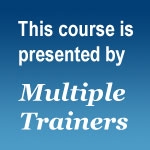

NVC Resources on Intention
-
The wisdom which NVC is based on is as old as humanity itself. This telecourse recording draws insights from NVC’s elder siblings of Taoism, Buddhism and indigenous culture to offer new ways of approaching common NVC ‘stuck’ places.
-
Join CNVC Certified Trainers, Raj Gill and Mary Mackenzie as they explore the Nonviolent Communication process of Empathy. This audio will support people with a basic understanding of Nonviolent Communication who want to deepen their ability for empathic presence.
-
Inbal answers a parent's question about praise and offers a perspective on how praise translates into the NVC framework.
-
Jim and Jori offer a tip to stay present in the face of our reactivity to witnessed conflict.
-
Who does not want to be understood? In Tip #6, Eric shows you how to deepen connection and trust by checking your understanding with the person you are conversing with.
-
Trainer Tip: The change you're looking for begins with a single step.
-
Here's a practice for cultivating more awareness of our thinking and choices, when our feelings and thoughts become stimulated.
-
Recalling Krishnamurti, Marshall referred to the capability of distinguishing observation vs observation mixed with evaluation as "the highest form of human intelligence." Read on for an exercise to help practice the skill of observation in combination with mindful walking.
-
Trainer Tip: Is there something you would like more of in your life right now? Try not to look to other people to provide the kind of experiences you want. Can you think of a way that you can be the change you seek? See if responding to the people the way you would want them to respond to you shifts something. Read on for an example of how.
-
"Falling out of love" is a misleading concept that can lead to feelings of helplessness in relationships. The initial intense phase of love gradually gives way to the need for intentional effort and communication. Unrealistic relationship expectations can erode connection, causing the perception of falling out of love. To address this, we can ask key questions and seek clarity to attend to unmet needs and maintain a healthy connection.

Quick Links
Subscription Preferences
Stay In Touch!
Looking for ways to keep up with NVC Academy news, get special offers, free resources, or words of inspiration? Here are five ways to stay engaged:









